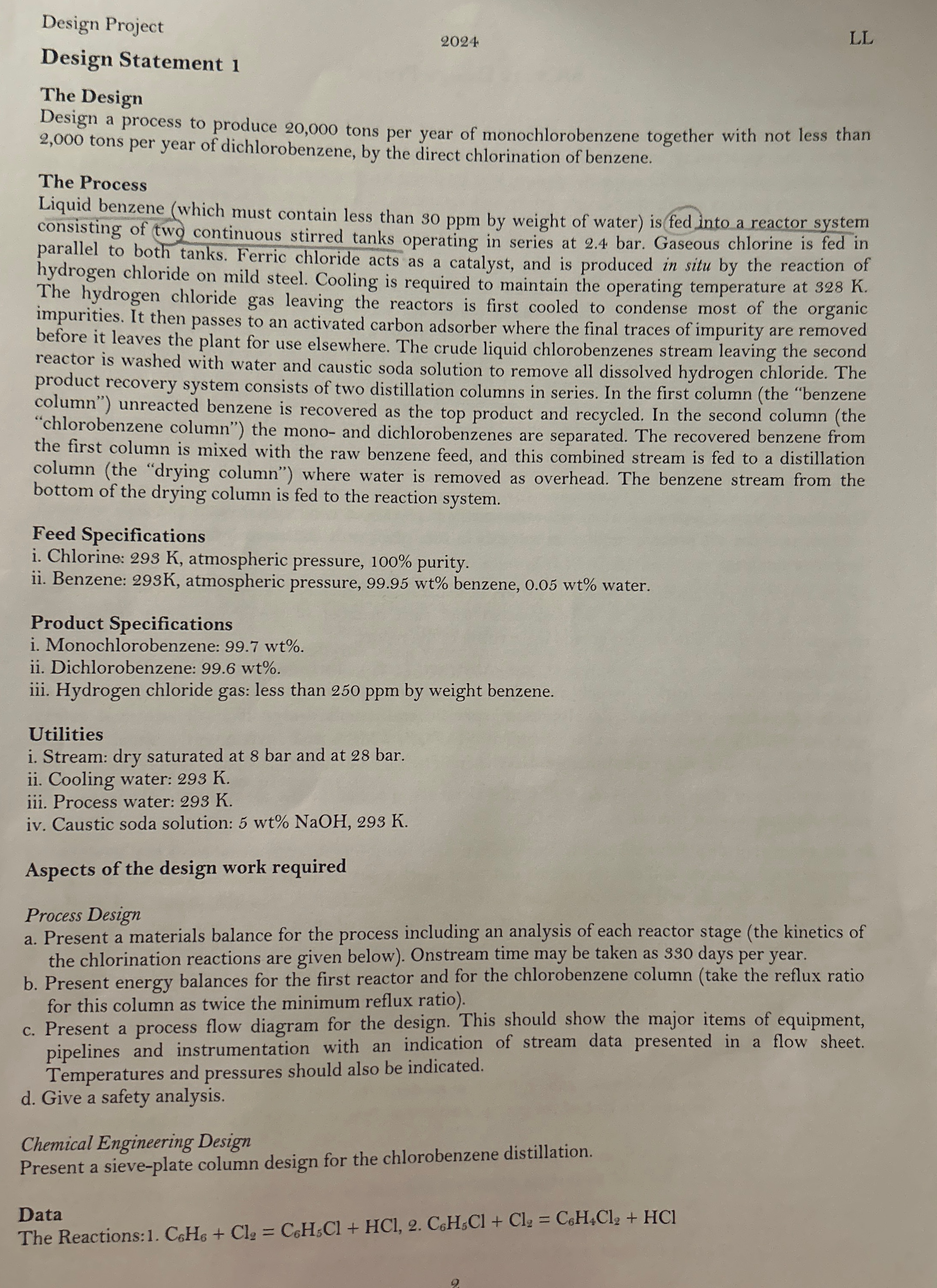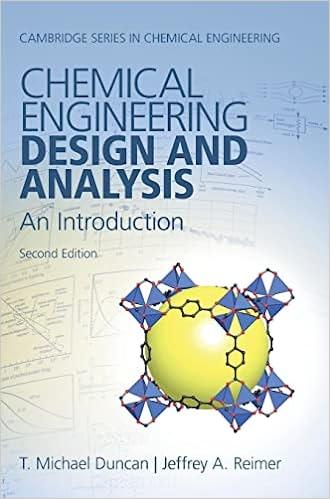Answered step by step
Verified Expert Solution
Question
1 Approved Answer
Design Project 2 0 2 4 LL Design Statement 1 The Design Design a process to produce 2 0 , 0 0 0 tons per
Design Project
LL
Design Statement
The Design
Design a process to produce tons per year of monochlorobenzene together with not less than tons per year of dichlorobenzene, by the direct chlorination of benzene.
The Process
Liquid benzene which must contain less than by weight of water is fed into a reactor system consisting of two continuous stirred tanks operating in series at bar. Gaseous chlorine is fed in parallel to both tanks. Ferric chloride acts as a catalyst, and is produced in situ by the reaction of hydrogen chloride on mild steel. Cooling is required to maintain the operating temperature at The hydrogen chloride gas leaving the reactors is first cooled to condense most of the organic impurities. It then passes to an activated carbon adsorber where the final traces of impurity are removed before it leaves the plant for use elsewhere. The crude liquid chlorobenzenes stream leaving the second reactor is washed with water and caustic soda solution to remove all dissolved hydrogen chloride. The product recovery system consists of two distillation columns in series. In the first column the "benzene column" unreacted benzene is recovered as the top product and recycled. In the second column the "chlorobenzene column" the mono and dichlorobenzenes are separated. The recovered benzene from the first column is mixed with the raw benzene feed, and this combined stream is fed to a distillation column the "drying column" where water is removed as overhead. The benzene stream from the bottom of the drying column is fed to the reaction system.
Feed Specifications
i Chlorine: atmospheric pressure, purity.
ii Benzene: atmospheric pressure, benzene, water.
Product Specifications
i Monochlorobenzene:
ii Dichlorobenzene:
iii. Hydrogen chloride gas: less than ppm by weight benzene.
Utilities
i Stream: dry saturated at bar and at bar.
ii Cooling water:
iii. Process water:
iv Caustic soda solution: NaOH,
Aspects of the design work required
Process Design
a Present a materials balance for the process including an analysis of each reactor stage the kinetics of the chlorination reactions are given below Onstream time may be taken as days per year.
b Present energy balances for the first reactor and for the chlorobenzene column take the reflux ratio for this column as twice the minimum reflux ratio
c Present a process flow diagram for the design. This should show the major items of equipment, pipelines and instrumentation with an indication of stream data presented in a flow sheet. Temperatures and pressures should also be indicated.
d Give a safety analysis.
Chemical Engineering Design
Present a sieveplate column design for the chlorobenzene distillation.
Data
The Reactions:

Step by Step Solution
There are 3 Steps involved in it
Step: 1

Get Instant Access to Expert-Tailored Solutions
See step-by-step solutions with expert insights and AI powered tools for academic success
Step: 2

Step: 3

Ace Your Homework with AI
Get the answers you need in no time with our AI-driven, step-by-step assistance
Get Started


